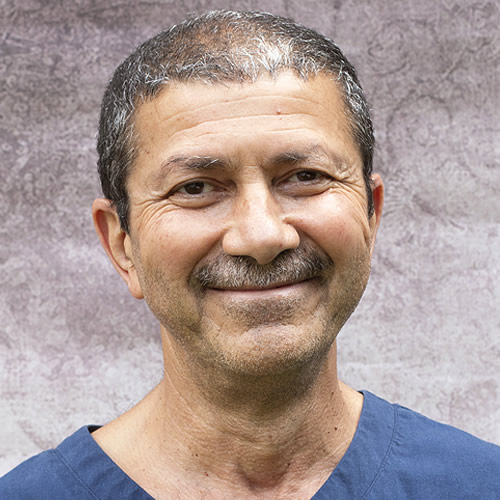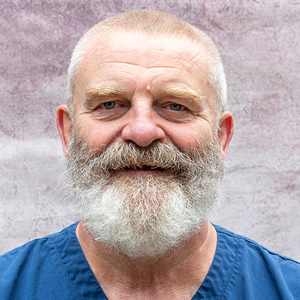Intravenous Sedation With More Than One Drug
More than one sedative medicine can be used for people having more complicated dental procedures or those with severe anxiety. Our team will tell you if this applies to you.
A dose of the sedative drugs will be chosen for you individually and given by injection. This is usually into a vein in the back of your hand or in your arm through a cannula.
A needle is used to put the cannula in but is then removed immediately. It is normal to feel a sharp scratch when the cannula is inserted. A local anaesthetic paste or liquid can be used first to reduce the pain of the injection.
Once the cannula is in the vein, the sedation drug can be given without using any more needles. The cannula remains in until the dentist has checked that you have recovered from the sedation but it will be removed before you go home.
IV Sedation from £290 - £650
Sedation costs will vary depending on treatment complexity
Choose us and benefit from
- Experienced and fully certified sedation team
- Highly-rated by patients on Google
- State of the art sedation facilities
- Pain-free dentistry for anxious patients
- Safe and effective techniques
Our sedation team includes
Our gentle & caring sedation team at St Faith Dental have over 90 years combined expertise, and by using safe and effective techniques they make sure your experience with us is a pain free one.
Our friendly sedation team are here to help
What to expect
The information provided here is a general guide for patients having dental treatment with sedation. As part of the face-to-face discussions with your dentist, you may be given advice that is specific to your treatment plan. This may differ in some areas to the general principles outlined here.
Before any treatment is started, the dentist will ask you to confirm consent. This means that you understand the planned treatment and how you will receive the sedation.
If you have requested a pre-assessment, it is usual to have at least two appointments. The first appointment will be an assessment when your dental treatment under sedation will be planned and discussed with you. The dental treatment under sedation will take place at the second and subsequent appointments.
If the treatment is needed as an emergency, or it is otherwise considered to be in your best interest, it may be possible to have treatment under sedation at the first appointment.
It is important that you let the dentist know your medical history, including any medicines that you are taking. The dentist will need to know if you have ever had any problems with having either sedation or a general anaesthetic.
If you think you may be pregnant, you need to let the dentist know. You may need to come back to have your treatment at another time. You should let the dentist know if you are breastfeeding.
You will remain conscious during this kind of sedation. The dental team are trained to give sedation and they will watch you closely using appropriate monitoring equipment, this will enable them to treat any problems that may develop.
You may experience a temporary loss of memory during the time that you are sedated. Many patients have no memory of the procedure at all. You may feel unsteady on your feet for some hours after the procedure. Your ability to think clearly and make judgements may be affected for the next 24 hours. You may experience some forgetfulness.
Once you are sedated, the dentist can use local analgesia (pain relief that numbs the site of the dental treatment). Local anaesthetic as a paste is sometimes used to numb the site of the treatment.
Any injections that you may need can be given through this numbed area to reduce the chance of any discomfort.
You will spend some time in the recovery area following your treatment. You will be checked by the dentist or the person giving you the sedation before you can go home. You must be accompanied by an able-bodied adult who can take responsibility for you following your treatment.
This person may need to stay with you overnight. If arrangements have not been made for someone to accompany you after treatment, you will not be able to have the sedation.
Your judgement will be affected by the drugs. This is similar to the effects of consuming alcohol. You should not drive a car, ride a bicycle or operate machinery until the following day.
In some cases, this may be for as long as 24 hours. You should also not take responsibility for the care of others, use sharp implements or cook.
It would be unwise to make any irreversible decisions for up to 24 hours following your treatment. Owing to the after effects of the drugs used, care should be taken when using the internet for personal communication.
Before you are discharged, the dentist or dental nurse will give you and the adult accompanying you (escort) important information about your care. You will be given information relating to any local analgesia and the treatment you have received.
The dentist will also provide details of pain relief as well as how and when to take other prescription medicines.
You will be given a telephone number of who to contact if you have any problems as a result of your treatment.
As with the administration of any medicines, there are risks associated with intravenous sedation. These might include:
A reduction of oxygen in the blood stream due to poor breathing during sedation. You may be asked by your dentist / sedationist to take deep breaths to correct this. Your breathing and oxygen levels will be monitored throughout the procedure.
Bruising at the site of the cannula. This may take several days to fade completely.
Very rare risks include allergic reactions to the sedative drugs that you have been given or vomiting during the procedure. Your dentist / sedationist will discuss any concerns that you may have prior to the procedure taking place.
Highly rated on Google Business
“I am a dentists worst nightmare for being anxious and stressed at the thought. My own dentist, try as hard as they could, were unable to get near the broken tooth so referred me. I am amazed at how reassuring and swift on the day the dentists and staff were at St Faiths. The extraction took place and I was in recovery and ready to go home without knowing anything about it. Thank you.”




